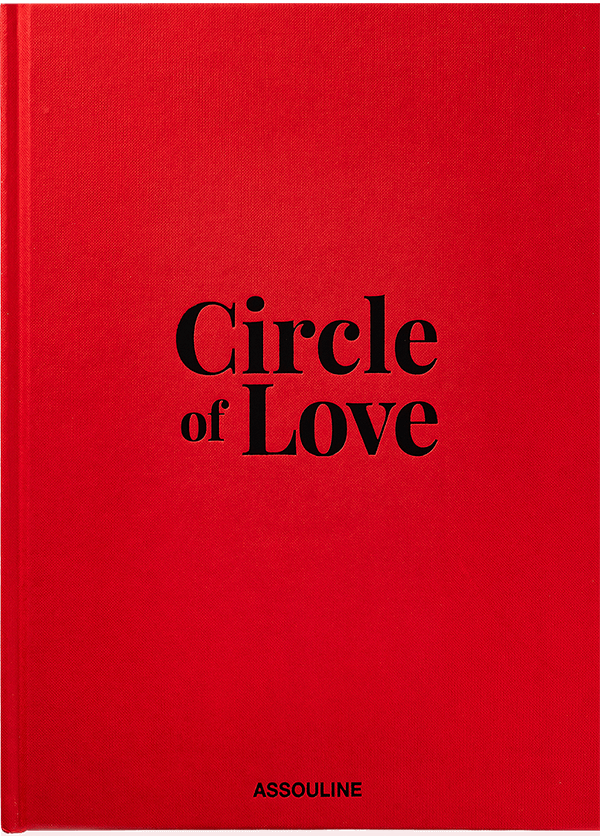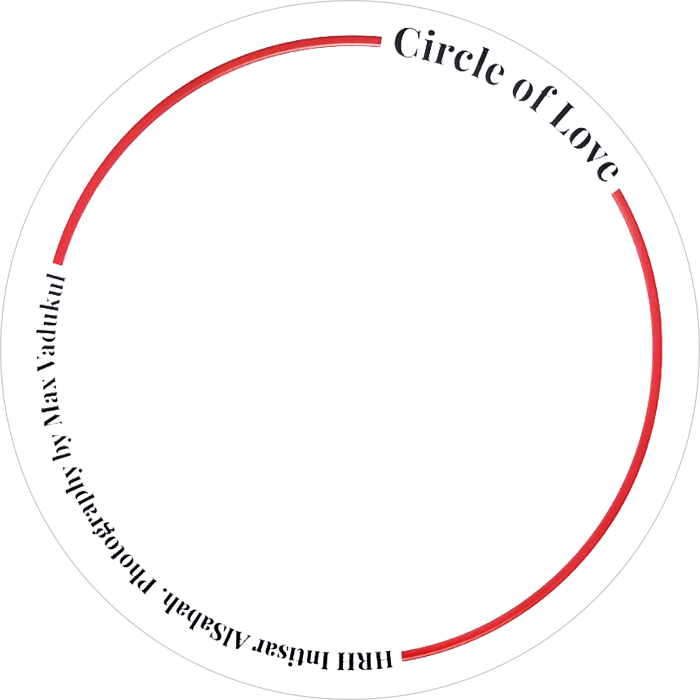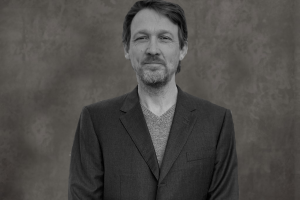X



Please tell us more about your journey from realising the psychological importance of the arts to applying it in your work over the years.
One of the main influences for me was that my maternal grandmother was admitted to a psychiatric hospital when I was a youngster. She had dementia and was placed in one of those very big, Victorian psychiatric asylums. It made a massive impression on me not only because my grandmother was there, but also because of the history and the moral aspects of these places, and what treating psychiatric disorders encompassed back then. Historically, in the UK, it was very much focused on medication and people going to these hospitals at the edges of the town, and so on.
I became really curious about how we understand the humans psyche and what we considered normal in that sense.
Then, when I was out of university, I was involved in the Brighton Festival, which is an annual, one-month-long arts festival on the South coast of the UK. My first ever project was working with a group of adults with learning disabilities. It was one of those moments of inspiration for me in terms of realising my future vocation, because I thoroughly enjoyed the work, the challenge, the collaboration, and the opportunities. However, I also realised how the arts were marginalised, at least in our country. In 1992, I came up to London and did my post graduate training as a drama therapist.
When I graduated, I worked in a forensic psychiatric hospital in South London where the patients were sectioned which, according to the UK regulations, means that they are not allowed to move around the community.
I worked there as a drama therapist for about five years, and I really found drama therapy to be a context in which individuals and groups could work imaginatively and collaboratively with their stories. It was not necessarily about trying to change their stories or confronting them with their autobiographical stories, but about working with the imaginative realms as well. That was a very important aspect of that work.
I trained as a psychotherapist working with the arts, and then joined the Royal Central School of Speech and Drama, and I’ve been teaching and researching here for 20 years now. My focus now is mainly on educational practice and researching the role of traditional storytelling in arts therapy education.
I’m also involved with the European Consortium of Arts Therapies Education (ECArTE) whose main aim is to develop the standards of training and education in the arts therapies in Europe.
With the COVID-19 pandemic has come a real awareness of mental health, and in some ways, it has been a great leveler, because it seems to me that people are now more inclined to talk about mental health, vulnerability, and depression than ever before. I think that the work of the Intisar Foundation is a part of the movement of understanding these concepts and understanding the impact of policy making and supporting the individuals and communities in finding their voices through the arts. This is a socio-political arm of drama therapy which, I think, the Intisar Foundation is doing really well.
The pandemic has made a big impact on how we communicate as human beings. There is also now a recognition of the need for psychological support for many different communities. In the UK, particularly for children, there is a mental health crisis, and I believe that arts therapies are very well placed for this work.
In your opinion, what people still don’t know or understand about drama therapy?
Drama therapy is a very old way of trying to understand the human psyche and trying to reflect on it and to think about the human condition. Some of the principles of drama therapy, such as the concept of creative expression through drama, are actually ancient Greek ideas. Catharsis was not invented in 1960s. Around the world, you have the arts as fundamental aspects of cultural practice, and a part of cultural practice is psychological practice. It’s about communities being together and communicating in a way that is not just verbal. Some of the deepest conversations come from the artistic practices and cultures.
In a sense, people sometimes don’t understand the implicit background of how the arts are utilised. As human beings, we use the arts as central ideas about having a sense of connection between each other but also with the things that we don’t understand. The arts help us through their capacity for metaphor, for communicating with what we call the Gods or the divine or anything of spiritual natural. That is what the arts do.
If I was to respond more pragmatically, I think that in the contemporary world in which we live, people need psychological support for different reasons, and I think that drama therapy has the capacity to offer different languages for people to find a sense of their own creative process and to feel part of the community. It’s not only drama therapy that does that. We are a relatively small discipline, but certainly drama therapy is important as an intervention which can access the healthy, imaginative part of the person and which looks at the story and narrative that the person tells to themselves.
What are some of the usual misconceptions about this form of psychological intervention? Why/In which cases do you find it more effective than other forms of therapy?
There are training courses in drama therapy in Europe, the US, South America, Canada, Australia, South Africa, and all of these different parts of the world have curated and developed drama therapy in different ways. They are all culturally specific in certain aspects. Therefore, my answer to this question will be determined by my own training, and the main critical framework that I am interested in is analytical psychology and the work of Carl Jung.
I think that the way in which Jung understood and researched the unconscious aspects of the human psyche is relevant to drama therapy, because the way in which drama therapy is often introduced is through play, improvisation, movement practices, gesture, and the sound – and all of these seem to be opportunities for the unconscious to find the form of expression. For Jung at least, this is an important dynamic- when the unconscious part of the psyche finds a way to express itself. Drama therapy allows for that dynamic to take shape.
For us at Intisar Foundation, drama therapy has been an invaluable tool for providing psychological support to Arab women affected by war and violence. What would be your advice on applying drama therapy in cultures with stronger mental health stigma?
Stigma is an interesting word and it is something that we do address in our programme too, because the stigma of asking for psychological support in different cultures and religions is a key question and often a hurdle.
I think that it is changing in the UK, but overall, that is a big piece of work, for instance, for the Intisar Foundation to encourage women to come forward and actually engage. From what I can gather, I think that the Intisar Foundation is doing a great job when it comes to this engagement, because the team on the ground can help these women even with some very practical things, such as giving them a cell phone or creating a space for them to work, and that is why I think that it’s really a pioneering project.
The language that we use to describe drama therapy and what we do [in different cultures and with different groups] is also very important.
The term drama therapy was used for the first time in 1950s in the UK by a man called Peter Slade who worked with adolescent boys in deprived parts of Birmingham. He realised that drama therapy was supporting them to come together as a group and act out their drives. However, people who apply drama therapy today need to be careful of the language that we use, because the term drama therapy was fine to Slade and the boys because they invented it, but for instance, if you go to a rural part of Russia where there is small community who have been farming for decades, they are not going to understand the term.
So, we need to think of the context into which we are moving our ideas. Being an Englishman, I have been acutely aware of this, and so we need to be critical about the ways in which we introduce the first world ideas or the ideas coming from scholars and academics, the assumptions that we make about the people with whom we talk, and why we are doing what we are doing. So, the ethical stance should include a reflection on motivation, languages, and why we are doing what we are doing, and to be really cautious of the imperialistic notion of help.
Having said that, I think that the arts are the universal language and it would be difficult to find a culture in the world that doesn’t use songs, or dance, or drama in some form as part of their culture. So, that’s a great leveler.
What would be your advice on the healing aspects of the arts, and especially drama therapy, for our beneficiaries and readers to apply in 2022?
I believe that every human being has a creative spirit and having an opportunity to develop it is a human rights question. Policy makers need to think what their priorities are for the communities that they lead. Of course, we live in a very complex political landscape at the moment, but I think that if we reintroduced the arts within our communities, it would not only allow for the language and the voice of the oppressed and the marginalised to be heard, but it would also create a sense of self-identity for them. For those two reasons, the arts really should be part of any governmental strategy and policy not only as psychological support but also as education and a tool to continue to build connections within the communities across the world, religions, and cultures.

Officially registered as a humanitarian organisation with the Charity Commission for England and Wales in 2019, Intisar Foundation is the first charitable organisation in the Middle East dedicated to providing psychological support programmes of drama therapy to Arab women affected by the brutality of war and violence.
Intisar Foundation
McCarthy Denning, Suite 102,
70 Mark Lane, London, EC3R 7NQ
UK Registration Charity Number: 1182384
Leave a Reply